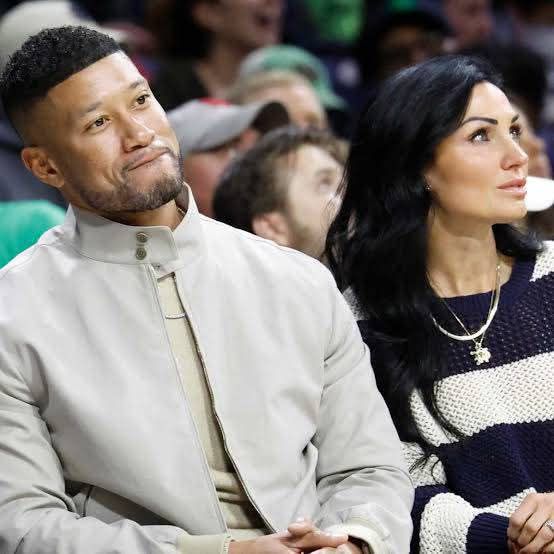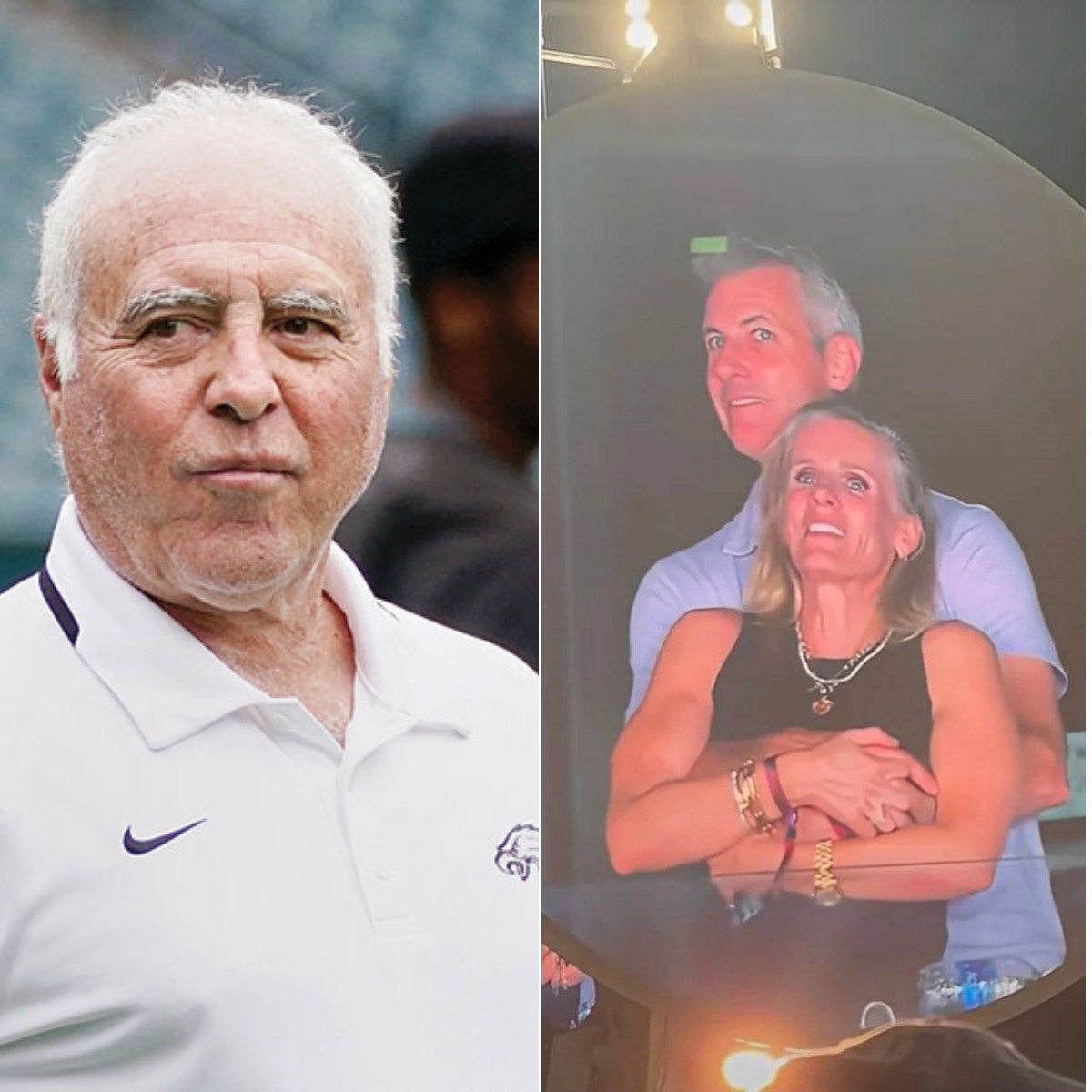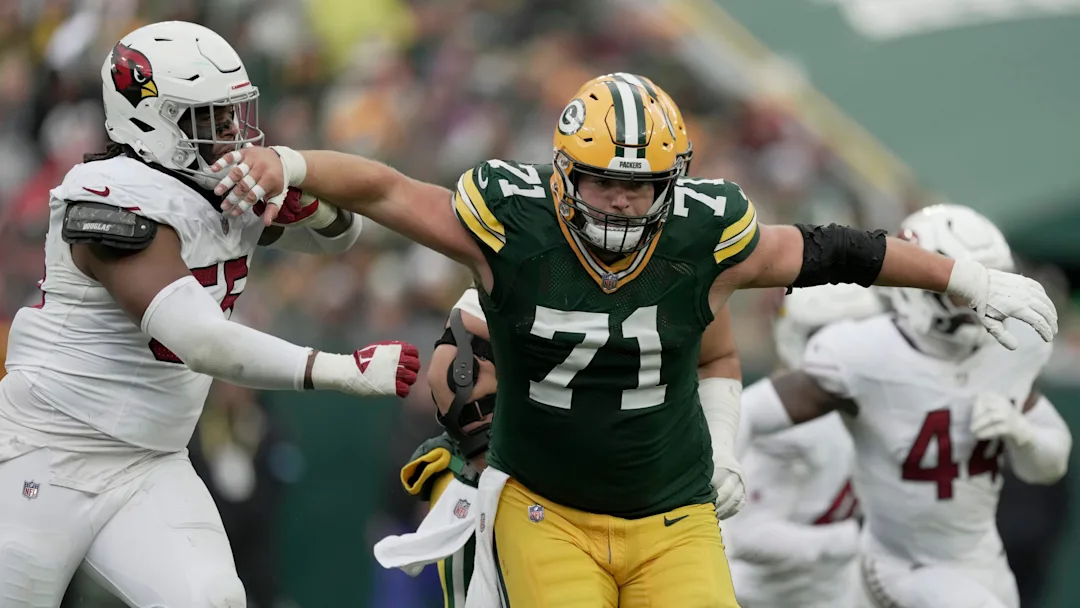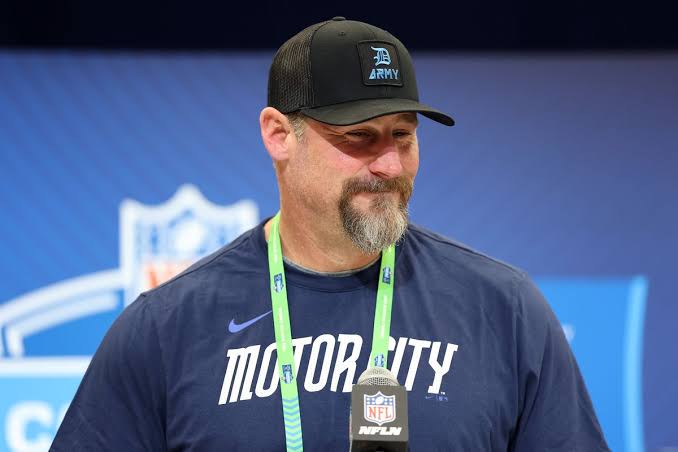Marcus Freeman, the head coach of the Notre Dame Fighting Irish football team, and his wife Joanna have announced their separation after eight years of marriage, sending shockwaves through South Bend and the college football world. The couple, who were often seen as a picture of unity and resilience, issued a brief joint statement expressing mutual respect and love for their children while acknowledging the end of their marriage. For Freeman, whose life has been a combination of relentless professional drive and public devotion to family, the separation marks a deeply personal moment during a pivotal chapter of his coaching career.
The Freemans’ journey together has always been a key part of Marcus’s public persona. As he rose through the ranks of college football coaching, culminating in his appointment as Notre Dame’s head coach in 2021, Joanna was by his side. They were college sweethearts, having met while Marcus played linebacker at Ohio State. Over the years, their relationship was frequently cited as a foundation of stability amid the pressures of high-profile college athletics. In interviews, Freeman often credited his wife for her support during late nights, difficult road trips, and the emotional strain that comes with leading one of the most storied programs in college football.
Their family includes six children, and the Freemans have always emphasized the importance of home life despite the demands of Marcus’s coaching responsibilities. Notre Dame fans became familiar with family-focused moments—pictures of the Freemans at team events, holiday gatherings, or postgame hugs at midfield. It was this visual narrative of unity that made Tuesday’s announcement particularly jarring. Social media erupted with responses from fans, fellow coaches, and even former players, many expressing shock, sadness, and words of support for both Marcus and Joanna.
In the statement released by the couple, they wrote, “After thoughtful consideration and with heavy hearts, we have made the decision to separate. We are grateful for the years we shared and remain committed to co-parenting our children with love, respect, and unity.” The message was brief but clear—an effort to maintain privacy, shield their family from media frenzy, and continue to support each other in a new capacity. It was a reminder that even those who appear to have it all—a prestigious job, a beautiful family, and public admiration—face deeply personal struggles behind closed doors.
The Notre Dame community has responded with an outpouring of compassion, highlighting how intertwined Freeman’s personal and professional lives have become with the university itself. Since taking over as head coach, Freeman has infused the program with fresh energy, empathy, and vision. His leadership style, often marked by transparency, emotional intelligence, and humility, endeared him to players, recruits, and fans alike. In this moment of personal difficulty, many are now returning that support, flooding message boards and social media platforms with messages of solidarity.
Despite the emotional toll this announcement may carry, there’s no indication that Freeman’s role with the Fighting Irish is under threat. University officials have made no comment on the matter, respecting the coach’s privacy, and instead reaffirming their belief in Freeman’s leadership. Still, observers note that such life changes can influence everything—from emotional resilience to professional focus—particularly when they occur amid the pressure cooker of high-level college sports.
Some insiders speculate that the stress of the coaching lifestyle, especially at a place like Notre Dame, may have contributed to the strain in the Freemans’ marriage. Between long hours, constant media attention, the pressure to win, and frequent travel, head coaching can be isolating. Joanna Freeman, who has largely stayed out of the spotlight, has been praised by many within the athletic community for the strength and grace she showed throughout Marcus’s ascension in the coaching ranks. Friends close to the family describe the split as “amicable” and “long-considered,” the result of evolving lives rather than a specific incident.
The timing of the announcement—just weeks before the start of preseason training camp—was likely deliberate. With the football season about to ramp up, Freeman may have wanted to address the personal news on his own terms before media speculation grew too intense. It’s a strategy that mirrors the meticulous approach he’s brought to his football program: clear communication, emotional intelligence, and calculated timing.
For Notre Dame players and staff, Freeman’s leadership is expected to remain steady. Those who know him best describe him as someone who compartmentalizes effectively, able to keep his focus on the task at hand even in the face of personal adversity. Still, this moment offers a deeper window into the humanity of college coaches. Freeman, often seen as a rising star and model of composure, now faces a challenge no playbook or film session can prepare him for: rebuilding the emotional foundations of a life he built alongside someone who was once his closest partner.
As fans digest this news, many are revisiting interviews and public appearances that showcased the couple’s dynamic. Some recall a memorable segment from a Notre Dame documentary where Marcus and Joanna spoke candidly about balancing family life and football obligations. Others think of game-day moments when Joanna was seen in the stands, flanked by their kids, cheering on her husband as he paced the sidelines. Those snapshots of joy now take on a more bittersweet tone.
This separation also underscores the immense demands placed on coaches’ families. The public often sees the glory—the wins, the trophies, the contract extensions—but less often acknowledges the sacrifices made by those in the background. Joanna Freeman, by all accounts, embraced that challenge with poise, raising six children while supporting Marcus through career shifts and relentless schedules. Their joint statement emphasized continued unity as parents, suggesting that both remain devoted to ensuring stability and love for their children, even as their marriage changes form.
Looking ahead, Freeman faces a critical season with Notre Dame. Expectations remain high, with the program hungry for a College Football Playoff appearance. Freeman’s recruiting efforts have been lauded, and his reputation as a player’s coach has helped solidify Notre Dame as a major national force. But this season, he carries more than just the weight of a program—he carries the private ache of transition and the public scrutiny that comes with it.
How Freeman channels this personal challenge into his coaching remains to be seen. Coaches like him, shaped by adversity both on and off the field, often find new reservoirs of empathy and clarity in the wake of personal trials. Some of the sport’s most legendary leaders have pointed to heartbreak, family change, or personal evolution as moments that sharpened their leadership and deepened their understanding of the people around them.
There is, however, a universal truth at play here—one that transcends football. Relationships evolve. People change. And even those who seem unshakable, even those who lead 100 young men every fall onto the gridiron, sometimes face moments where strength looks like letting go. Freeman’s story, still being written, now includes a chapter of vulnerability that fans, players, and fellow coaches will witness in real time.
In a sport often defined by grit, resolve, and resilience, Marcus Freeman now embodies those very qualities in a profoundly personal way. His ability to remain committed to his family, even in separation, echoes the very values he preaches to his team: responsibility, integrity, and unity. While the marriage may be ending, the lessons and legacy of that relationship will continue to shape his life and the lives of those who look to him for leadership.
In the end, Marcus Freeman isn’t just a coach navigating game plans and recruiting battles. He’s a father, a man of faith, and now, a single parent stepping into a new chapter of life with the same steadiness and quiet strength that brought him to Notre Dame in the first place. As he moves forward, both on and off the field, one thing remains certain—his story will resonate far beyond the win-loss column.




